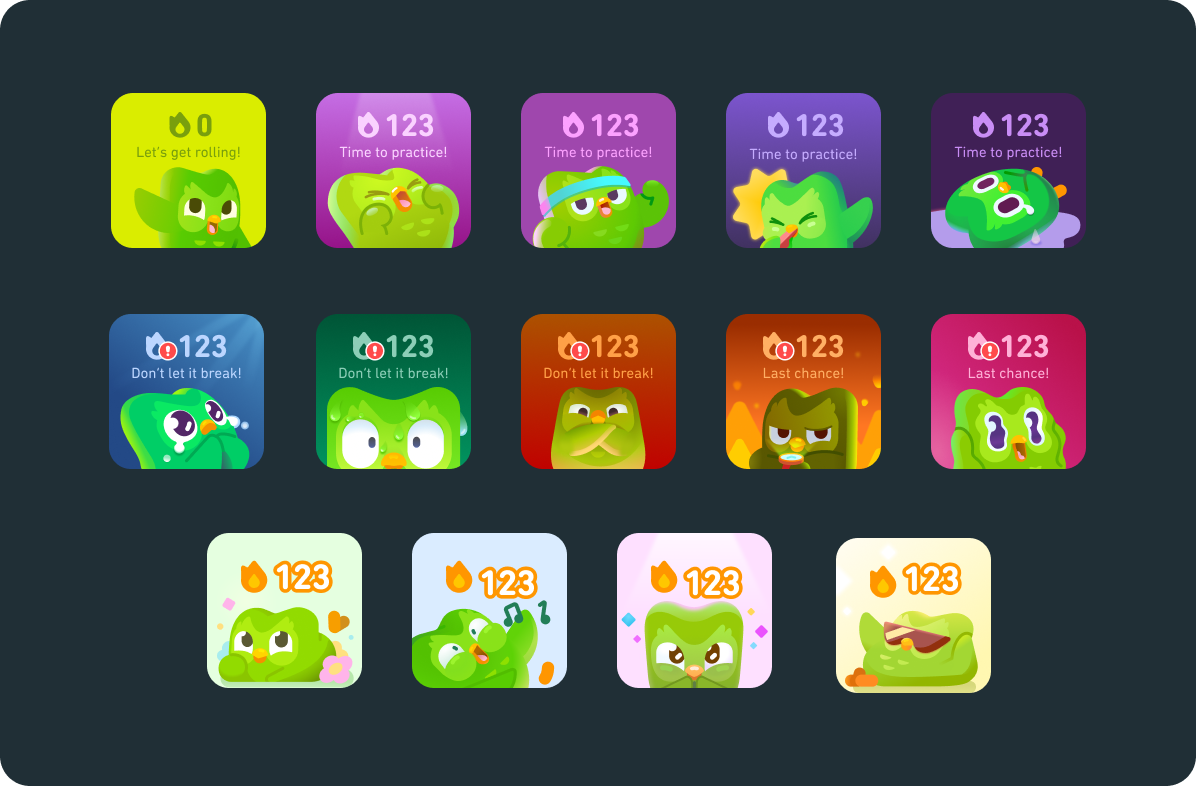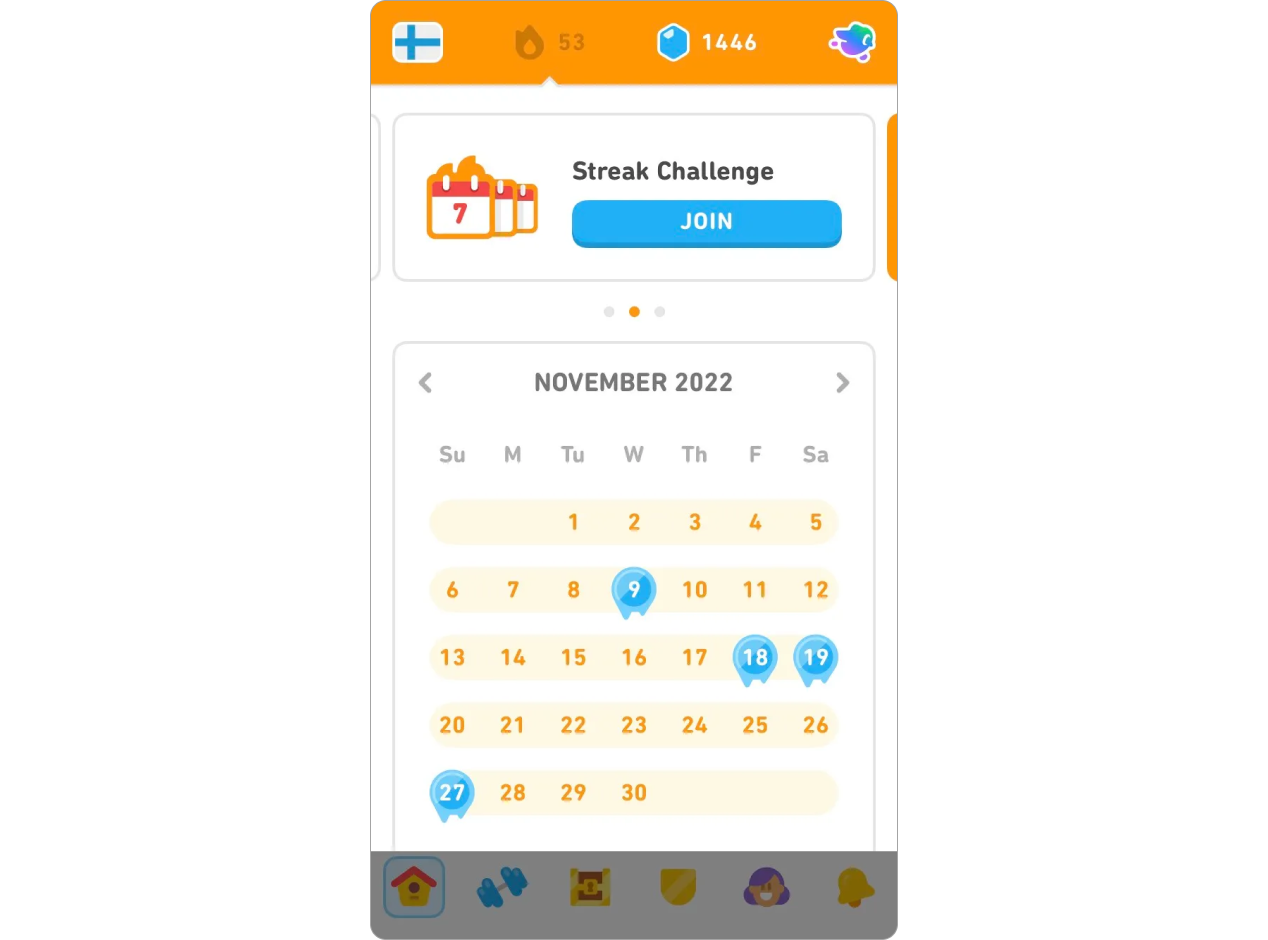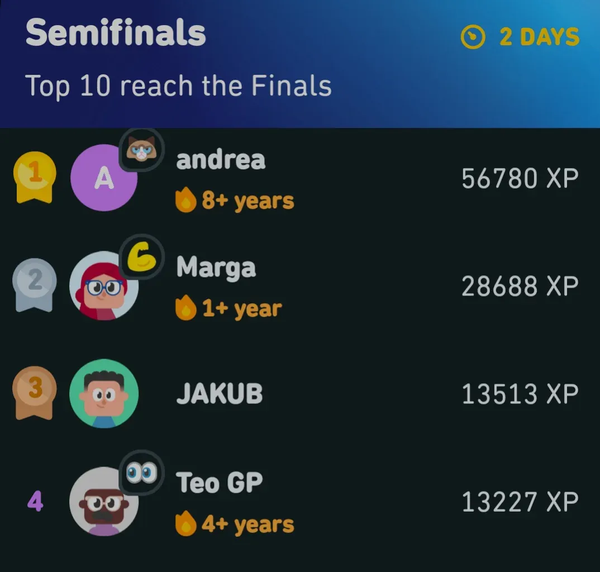Duolingo’s Way of Engaging Users

Summary: Duolingo’s small lesson size makes daily learning doable. Streaks tap into loss aversion to help users form consistent study habits. Leagues push users to study more, appealing to their desire for status and advancement.
I find Duolingo one of the most impressive products when it comes to learner engagement. The app uses a variety of strategies, but in this article, I’ll focus on a few that I think are most impactful so far: small lesson sizes, streaks, and leagues.

Small Lesson Size: Making Consistency Feel Achievable
Duolingo’s lessons take only 2-3 minutes to complete. What's great about small lessons is how doable they feel, even on your busiest or laziest day. This minimal time commitment makes keeping your 🔥streak alive a very achievable goal.
If you’re familiar with Jonah Berger’s REDUCE model from the book The Catalyst: How to Change Anyone's Mind, this aligns with the principle of “shrinking distance”—the gap between a desired behavior and where people currently are. Duolingo uses Ask for less—one of the strategies discussed in the book to reduce distance and move the request closer to people's zone of acceptance.
Streaks: The Grip of Loss Aversion
Streak taps into loss aversion—our tendency to feel the pain of losing something more intensely than the pleasure of gaining something of equal value.
Why is streak so impactful
When I think of streak, I think of its impact in 2 ways:
- Streak becomes our "asset": Because we've invested effort into it, the streak becomes a sort of asset or belongings—a symbol of our effort. We attach value to it, and losing the streak suddenly feels like losing a tangible property.
- Streak becomes our "status": It conveys how consistent or "dedicated" a user has been. For some users, there’s pride in showcasing a long streak to the Duolingo community. It's like proof of their hard work and commitment.
In short, the longer the streak, the more valuable it becomes to us, the more we don't want to lose it.
Streak supporting features
Beside small lesson size, which makes it very doable to maintain the streak, Duolingo has 2 other very interesting features:
- Widget: Widget increases the visibility of your streak status, avoid user forgetting them. It's also so fun to see the changing visuals and messaging of that little owl to nudge you back to study.
- Streak freeze: Humans aren’t machines, and we can't expect even the most committed learners to perform the same every day. Streak freeze acts as a thoughtful safety net, allowing for our human error and inconsistency.


Leagues: Tapping into Status and Social Class
Leagues also tap into loss aversion like Streak, but with an added social psychological element.
- Leagues create a “class” system, where higher leagues (Pearl, Obsidian, Diamond) give users a sense of "higher status" compared lower leagues.
- This system appeals to our innate drive to climb social hierarchies, to belong to a better or more exclusive class.
- Just like streaks, leagues also provide a sense of pride, achievement, and even bragging rights—something learners can show off to friends and fellow users.
- While maintaining a streak requires just 1 lesson a day, users have to study more to stay in the current league or to advance to a higher one. The invested effort is greater, thus their loss aversion is also greater. Users will likely try to study enough to not be demoted to a lower league.




